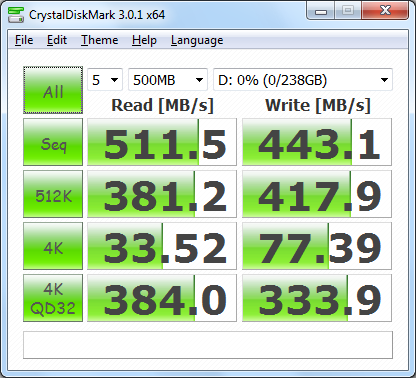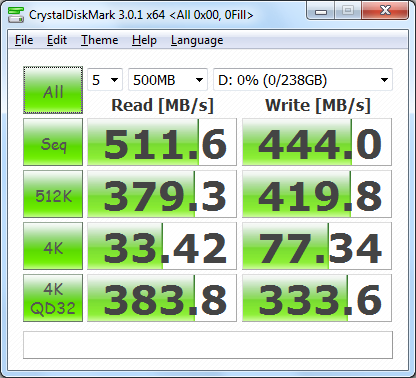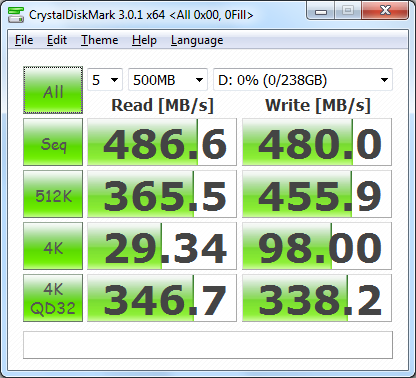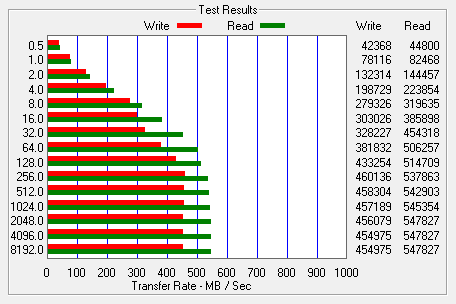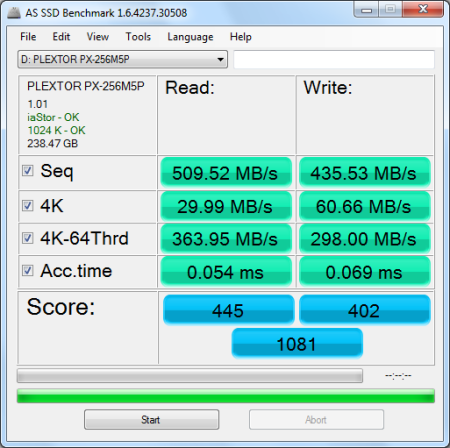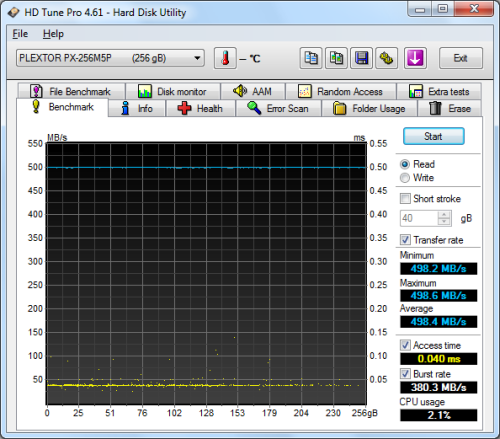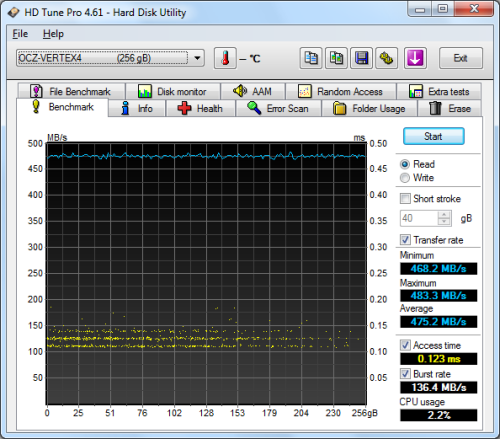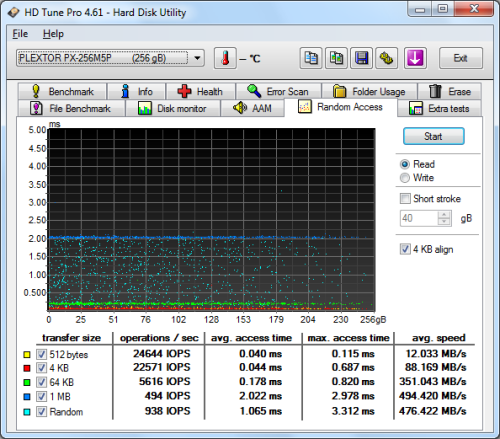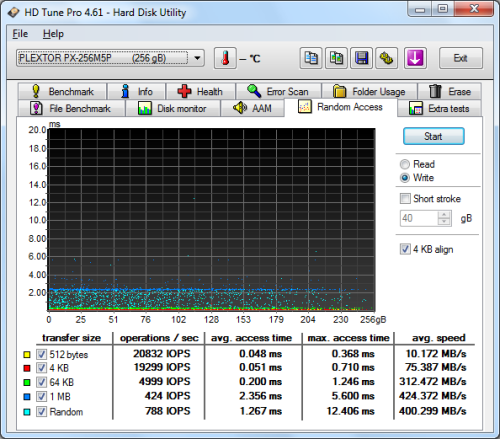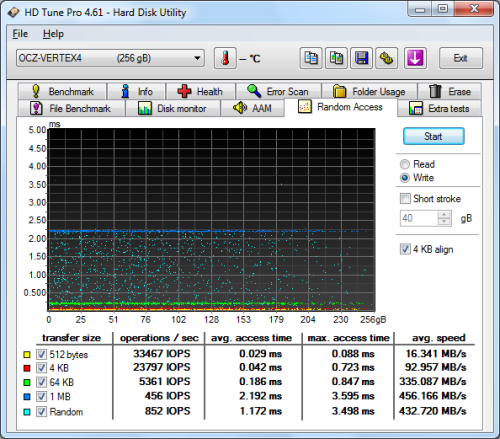

Model: Plextor PX-256M5P 256GB Solid State Drive
Manufacturer: Plextor
Provided By: Plextor LLC
As one of the biggest names in the storage industry, Plextor doesn't need much of an introduction. For more than a decade, they've produced some of the best optical drives the industry has seen. Known the world over for their quality, performance, and features, these drives have become favorites among consumers and professionals alike. Today, Plextor continues to lead the way by bringing cutting edge storage technologies to market. Along with a vast assortment of high-performance DVD and Blu-ray drives, the company offers NAS devices, external hard drives and a growing number of solid state drives.

This summer, Plextor launched its M5 Series (M5S) SSD. This affordable alternative to the company's M3 Series (M3S) shares many of the same features including Marvell's 88SS9174 controller chip, extra large DRAM cache and a custom firmware with True Speed technology, which maintains original performance levels, even after intensive use and long periods of operation. The big difference between the two drives is the type of NAND used. Instead of costly Toggle Mode NAND, the M5S is equipped with Micron's 25nm synchronous MLC NAND flash.
Plextor has now released its M5 Pro Series SSD. Unlike the M3 Pro (which wasn't much more than a M3S with an optimized firmware and ultra-slim form factor), the M5 Pro has very little in common with its sibling, the M5S. Instead of Marvell's 88SS9174 controller, the drive uses the newer, more powerful 88SS9187 "Monet" controller chip. The M5 Pro is also equipped with Toshiba's new 19nm Toggle Mode NAND to deliver up to 540MB/s read and 450MB/s write speeds as well as a maximum of 86,000 4KB random write IOPS.
In addition to True Speed, the M5 Pro features Plextor's new True Protect technology. Using the 128-bit error correction code (ECC) built into the Marvell 88SS9187 controller, this unique data protection system is able to automatically check and correct the accuracy of data being read from the flash memory. This is backed by the robust data hold-out algorithm in Plextor’s exclusive firmware which ensures that data can be read with extremely high accuracy, even in the long-term. When data confidentiality is required, the M5 Pro uses hardware in the AES-validated Marvell controller to provide secure 256-bit full-drive encryption.

For this review, Plextor sent us the PX-256M3P. This 256GB SSD comes equipped with 512MB of on-board cache and is capable of delivering up to 540MB/s sequential read and 450MB/s sequential write speeds as well as up to 94,000 random read and 86,000 random write IOPS.
| Plextor PX-256M5P 256GB Solid State Drive | |||||||||||||||||||||||||||||||||||
General Specifications
Performance
Power Consumption
Environment and Reliability
Dimensions and Weight
Other Features
|
Needless to say, this is only a taste of what the PX-256M5P has to offer. To give you an idea of what to expect, we'll take a closer look at Plextor's new 256GB SSD and then see how well it performs. Does the PX-256M5P have what it takes? Can it deliver the performance and features that we've come to expect from Plextor? Keep reading as we find out.
The PX-256M5P comes in a shiny, blue and black box. Along with a picture of the drive, the front advertises many of its key features including its 256GB capacity, SATA 6Gbps interface, True Speed technology and 5 year warranty. The back of the box provides a bit more information regarding its features, specifications and box contents. Inside, you'll find the SSD, a 3.5" adapter bracket, mounting screws, quick installation guide, warranty card and a CD containing NTI's SSD Utility Suite.

Physical Features:
Like Plextor's previous SSDs, the M5 Pro is very well constructed. The drive's outer casing is made entirely out of metal. Along with it being strong and durable, it is very lightweight. On top of that, its brushed aluminum finish looks great.


Plextor has reduced the M5 Pro's height from the standard 9.5mm down to 7mm. While that doesn't sound like much, this ultra-slim form factor lets you install the drive in ultrabooks as well as standard laptops and desktop PCs.
![]()
With the top off, you can see that Plextor has placed thermal pads on the controller, NAND flash and DDR3 cache chips. These pads transfer heat away from the components to the outer casing, which then acts like a large heat spreader.

As I mentioned earlier, the M5 Pro uses Marvell's new 88SS9187 "Monet" controller. The 88SS9187 is powered by a dual-core Marvell 88FR102 V5 CPU and supports up to eight NAND flash channels. The controller also features a high-performance ECC engine with adaptive read and write scheme as well as on-chip RAID functionality.
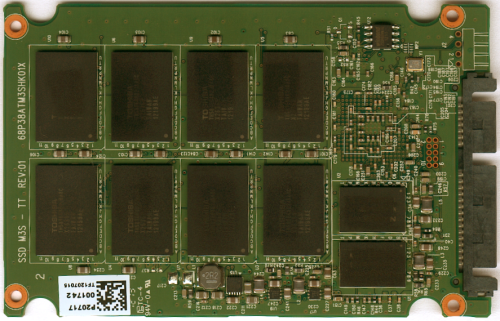

For the PX-256M5P, Plextor has opted to use Toshiba's 19nm TH58TEG8D2JBA8C Toggle Mode NAND flash chips. Looking at the picture above, you can see that there are eight of these chips on the top of the PCB. The drive also has two 256MB Nanya NT5CB128M16BP-CG DDR3 memory chips that are used for caching and garbage collection.
The test system used in this review was an HP 8200 Elite. The computer came equipped with an Intel Core i5-2400 CPU, 4GB of DDR3 1333MHz memory, Seagate Barracuda 7200.12 ST3250312AS 250GB SATA 6 Gb/s hard drive, NVIDIA Quadro FX580 512MB PCIe graphics card and an Intel 82579-LM gigabit network card. For the operating system, I installed a fresh copy of Windows 7 Enterprise.
To test the performance of the Plextor PX-256M5P, I ran a series of benchmarks using CrystalDiskMark 3.0.1, HD Tach RW 3.0.4.0, ATTO Disk Benchmark 2.46, AS SSD, HD Tune Pro 4.61, Anvil's Storage Utilities and Iometer. For comparison, I've also included test results from the Kingston HyperX 3K, OCZ Vertex 3 3.5", Plextor PX-256M3P, SanDisk Extreme, Samsung 830 SSD, Plextor PX-256M3S and Patriot Pyro SE.
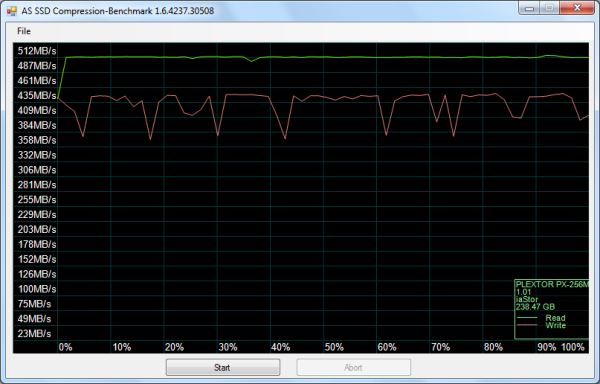
The M5 Pro is the first drive based on Marvel's new 88SS9174 controller chip. Looking at the screenshot above, you can see that, unlike SandForce controllers, it performs equally well with both incompressible (0%) and compressible (100%) data.
CrystalDiskMark 3.0.1:
First, I ran a few quick tests using CrystalDiskMark. This benchmark tool measures the performance of a storage device by testing its sequential read and write speeds as well as its random read and write speeds using blocks 512K and 4K in size.
According to Plextor, the PX-256M5P is capable of reading at 540 MB/s and writing at 450 MB/s when connected to a SATA 6 Gb/s port While the drive performed well, it came up a bit short of these numbers in CrystalDiskMark's sequential read and write speed tests.
The PX-256M5P performed equally well when using highly compressible 0x00 (0 Fill) data. This time around, the drive was able to read at 511.6 MB/s and write at 444.0 MB/s.
HD Tach RW 3.0.4.0:
Next, I used HD Tach to test the PX-256M5P's read, write and burst speeds as well as its seek times and CPU usage.

Looking at the screenshot above, you can see that the PX-256M5P had average read and write speeds of 418.5 MB/s and 365.3 MB/s respectively, as well as a burst speed of 345.5 MB/s.
ATTO Disk Benchmark 2.46:
I also used ATTO Disk Benchmark to test the PX-256M5P's sequential read and write speeds. The tests are run using blocks ranging in size from 0.5KB to 8192KB and the total length set to 256MB.
When tested with ATTO, the PX-256M5P's read speeds topped out at about 547 MB/s and its write speeds at 460 MB/s.
AS SSD:
AS SSD is a relatively new benchmark designed specifically for solid state drives. The application contains five synthetic tests used to determine the sequential and random read and write performance of a drive.
AS SSD also includes a copy benchmark. This test copies an ISO (two large files), program (many small files) and game (small and large files), returning the speed and duration of each.
HD Tune Pro 4.61:
Next, I ran a series of tests using HD Tune Pro. This hard disk utility measures a drive's performance by testing its sequential read and write speeds as well as its access time, burst rate and CPU usage. For this review, I'm also going to use it to benchmark the Vertex 4's random read and write speeds, random access times and the number of operations per second.
The PX-256M5P performed very well when benchmarked with HD Tune. The drive had average read and write speeds of 498.4 MB/s and 412.6 MB/s, respectively, and a burst rate of more than 380 MB/s
The PX-256M5P didn't disappoint when doing random reads and writes. When writing 4KB blocks, the drive reached 19,299 IOPS and had an average speed of 75.387 MB/s. The PX-256M5P was even faster when reading, reaching 22,571 IOPS with an average speed of 88.169 MB/s.
Anvil's Storage Utilities:
Anvil's Storage Utilities is another new benchmark designed with SSDs in mind. The standard storage benchmark measures a drive's performance by testing its transfer speeds, access times and IOPS.

Iometer:
Lastly, I ran a series of tests using Iometer. This tool can be configured to benchmark a number of things. In this case, I used it to measure the PX-256M5P's read and write speeds and the number of operations per second. The tests were run using random bytes and a queue depth of 3.

The PX-256M5P's performance was very similar to what we saw in our other tests. The drive was able to read at 529.49 MB/s and write at 444.24 MB/s.

The PX-256M5P also performed pretty well when doing random reads and writes. In our tests, the drive was able to write at 261.45 MB/s and read at a blazing 160.05 MB/s.

According to Plextor, the PX-256M5P is capable of 94,000 IOPS when reading and 86,000 IOPS when writing 4K blocks. In our tests, the drive reached 40,972 random read IOPS and 66,930 random write IOPS. The only way I came close to Plextor's numbers was to increase the queue depth. With the queue depth set to 32, the PX-235M5P reached 94,238 random read IOPS and 81,665 random write IOPS.
TRIM and True Speed:
While SSD's offer many benefits, there are some downsides to using flash memory. One of the biggest issues people run into is performance degradation. Over time, an SSD will run out of fresh blocks and will have to write over data the file system has marked as deleted. This procedure is very complicated and can slow an SSD's write speeds considerably.
To fix this problem, most manufacturers have added TRIM support to their SSDs. The TRIM command allows an operating system, such as Windows 7, to tell an SSD which data blocks are no longer in use. Using this information, the drive pro-actively erases these blocks and adds them to the free block pool.

The M5 Pro is the latest drive to ship with their Plextor's exclusive True Speed technology. By leveraging the power of advanced firmware, True Speed ensures that the SSD works at its full potential even after extensive use and long periods of operation. Along with support for TRIM, the M5 Pro's firmware incorporates Plextor's Bad Block Management, Global Wear Leveling and Instant Restore technologies. Where Bad Block Management and Global Wear Leveling optimize the way data is written on the drive, Instant Restore maintains "like new" performance by reorganizing data to maximize the number of free cells.
Plextor's True Speed technology works very well, as I saw very little performance degradation, even after hours of testing. I was finally able to overwhelm it by using Iometer to fill the entire drive and then running a random write test for 30 minutes. This had little impact on the PX-256M5P's read speed. However, its average writing speed dropped to 132.2 MB/s when in this "dirty" state.
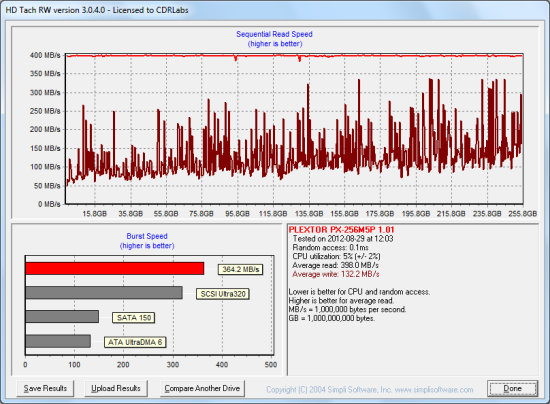
Plextor PX-256M5P - Dirty
The PX-256M5P's average write speed bounced back up to 310.3 MB/s within a matter of minutes. However, its average read speed dropped down to 387.3 MB/s while it was recovering.
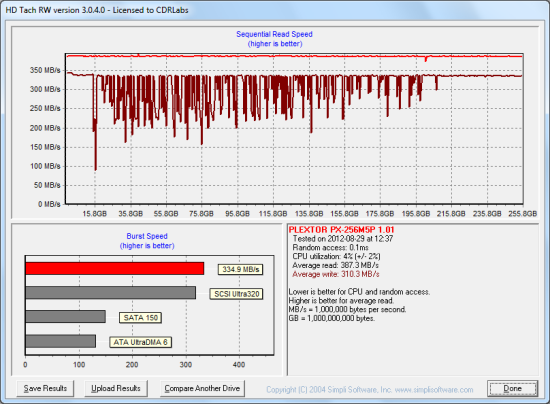
Plextor PX-256M5P - Recovering
I let the computer sit for a few hours and then reran the test. Looking at the screenshot below, you can see that the PX-256M5P's average write speed had increased to 336.8 MB/s.

Plextor PX-256M5P - After TRIM
Plextor's Plextool utility does not work with the M5 Pro yet. However, I was able to use LtnSSD to pre-format the PX-256M5P. With the drive wiped clean, it had average read and write speeds of 366.6 MB/s and 418.7 MB/s, respectively.
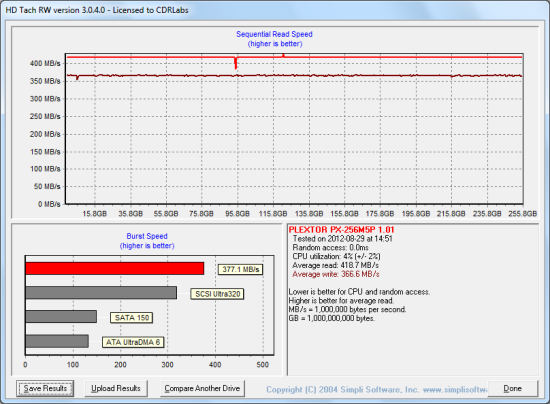
Plextor PX-256M5P - Wiped
Final Thoughts:
For Plextor, the M5 Pro SSD is an outstanding achievement, not only in regards to performance, but the technologies it brings together. Designed with prosumer and business users in mind, the M5 Pro combines Marvell's new 88SS9187 controller with Toshiba's 19nm Toggle Mode NAND flash to deliver some of the best all around performance we've seen. In our sequential read and write tests, the PX-256M5P was able to read at speeds as high as 547 MB/s and write at speeds in excess of 440 MB/s. It also did reasonably well our random write tests, producing nearly 67,000 IOPS at low queue depths. Increasing the queue depth did lead to better results. However, the PX-256M5P still had a hard time keeping up with the OCZ Vertex 4.
Impressive performance isn't the only thing the M5 Pro has to offer. The drive supports Plextor's exclusive True Speed technology, which does an excellent job of maintaining original performance levels, even after intensive use and long periods of operation. The M5 Pro also features an enterprise-grade double-data protection system to protect the integrity and confidentiality of your data. This system includes 256-bit AES encryption as well as Plextor's new True Protect technology, which ensures that data is stored and retrieved without error. To top it all off, Plextor backs the M5 Pro with an industry-leading five year warranty.
The M5 Pro is expected to ship later this month and, if the suggested retail prices of the PX-128M5P ($190), PX-256M5P ($320) and PX-512M5P ($650) are any indication, it will probably end up costing about the same as the M3 Pro. That being said, the M3 Pro is not exactly cheap and with OCZ's Vertex 4 selling for less than $1/GB, the M5 Pro is going to be a tough sell, especially for consumers and enthusiasts on a budget.

Highs:
- True Speed technology
- Available in 128GB, 256GB and 512GB capacities
- Excellent sequential read and write speeds
- Performs equally well with compressible and incompressible data
- Consistent performance, even after intensive usage
- SATA 6Gb/s interface
- Toggle Mode NAND flash
- Large DRAM cache
- Exclusive firmware with Instant Restore, Global Wear Leveling and Bad Block Management
- True-Protect double-data protection technology
- 256-bit AES encryption
- Supports TRIM, SMART and NCQ
- Ultra-slim form factor
- Includes a 2.5" to 3.5" adapter bracket
- Includes NTI SSD Utility Suite
- 5 year warranty
Lows:
- Random write performance at low queue depths could be better
- Does not work with Plextor's PlexTool utility yet
- Pricey




